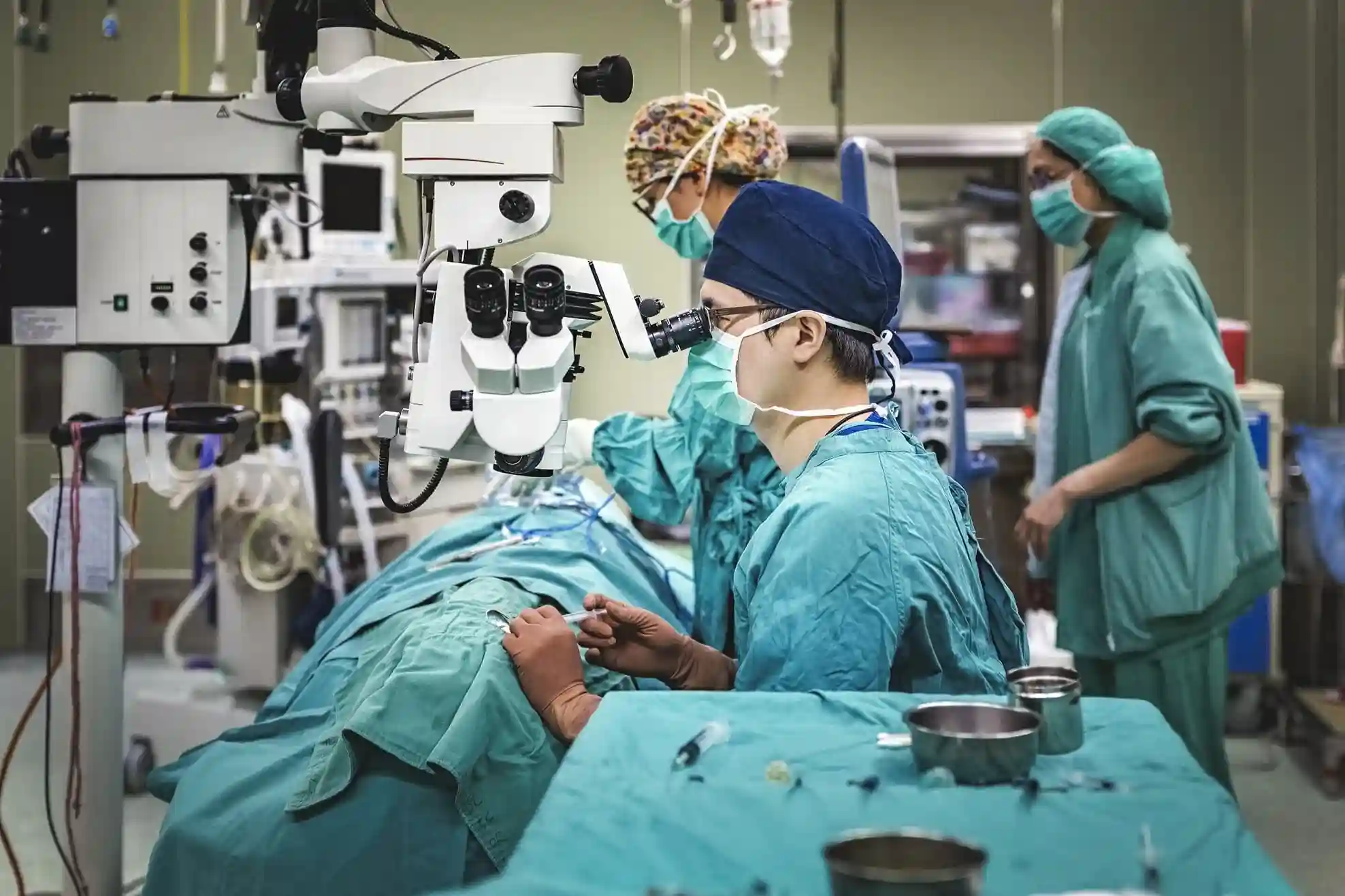The Surgical Technologist Program is a specialized training program designed to prepare individuals for the critical role of assisting surgeons and medical teams during surgical procedures. Surgical technologists are an essential part of the operating room team, ensuring that operations run smoothly and efficiently by handling equipment, sterilizing instruments, and assisting surgeons directly. This role requires a strong understanding of medical procedures, sterile techniques, and patient care.
In this comprehensive article, we will cover everything you need to know about the Surgical Technologist Program, including its curriculum, duration, certification requirements, job opportunities, and career outlook.
What is a Surgical Technologist?
A surgical technologist, sometimes known as a scrub tech or operating room technician, is a healthcare professional who assists surgeons, nurses, and other members of the surgical team. They ensure that the operating room is ready for surgery by preparing the necessary instruments, equipment, and sterile environments. Their work is crucial for maintaining a sterile and safe environment, which directly affects patient outcomes.
Duties of a Surgical Technologist
- Preparing operating rooms and sterilizing equipment
- Arranging surgical instruments and materials
- Assisting during surgical procedures by passing instruments to the surgeon
- Ensuring that the environment remains sterile
- Handling specimens and other surgical materials
Structure of the Surgical Technologist Program

The Surgical Technologist Program typically includes a mix of classroom instruction, laboratory practice, and clinical experience. It is structured to provide a well-rounded education that covers both theoretical knowledge and practical skills. Below is a breakdown of the common elements of the program.
Classroom Instruction
In the classroom, students will learn about human anatomy, physiology, medical terminology, and the basics of surgical technology. Topics covered include:
- Medical Ethics and Legal Aspects
- Patient Care Concepts
- Sterilization Techniques
- Surgical Procedures
- Pharmacology for Surgical Technologists
Laboratory Practice
Hands-on training is essential for a surgical technologist. In the lab, students practice sterile techniques, the handling of instruments, and role-playing to simulate real-life surgical situations. They will learn:
- How to set up operating rooms
- Instrument identification and handling
- Proper sterilization procedures
- Simulation of surgical assisting
Clinical Experience
The clinical component is the final phase of the program, allowing students to gain real-world experience by working in hospitals and surgical centers. Under the supervision of experienced technologists and surgeons, students perform tasks such as:
- Assisting in actual surgeries
- Handling surgical instruments during procedures
- Applying sterile techniques in real scenarios
Program Duration and Requirements
The Surgical Technologist Program usually takes between 12 and 24 months to complete, depending on whether you pursue a certificate, diploma, or associate degree. Below is a breakdown of the different program types.
| Program Type | Duration | Outcome |
|---|---|---|
| Certificate Program | 12-18 months | Certificate |
| Diploma Program | 12-18 months | Diploma |
| Associate Degree | 18-24 months | Associate Degree |
Admission Requirements
Admission requirements for the Surgical Technologist Program vary by school, but common prerequisites include:
- High school diploma or GED
- Minimum GPA (usually 2.0 or higher)
- Basic knowledge of biology and human anatomy
- Completion of certain general education courses
- Passing entrance exams (if required)
Some programs may also require applicants to pass a background check, complete a physical exam, and provide immunization records.
Certification and Licensing for Surgical Technologists

After completing the Surgical Technologist Program, graduates are often encouraged or required to obtain certification. The most recognized certification for surgical technologists is the Certified Surgical Technologist (CST) credential offered by the National Board of Surgical Technology and Surgical Assisting (NBSTSA).
Steps to Obtain CST Certification
- Graduate from an Accredited Program – Ensure the program is accredited by the Commission on Accreditation of Allied Health Education Programs (CAAHEP) or the Accrediting Bureau of Health Education Schools (ABHES).
- Pass the CST Exam – The CST exam covers topics like surgical procedures, sterilization, and patient care.
- Maintain Certification – Certification must be renewed every four years, either by taking continuing education courses or retaking the CST exam.
Career Opportunities for Surgical Technologists
A career as a surgical technologist offers a variety of opportunities in healthcare. Surgical technologists are primarily employed in hospitals, but they can also work in:
- Outpatient surgery centers
- Physician offices with surgical practices
- Specialty clinics (e.g., plastic surgery, cardiovascular surgery)
- Medical equipment sales
Average Salary for Surgical Technologists
The salary for surgical technologists varies depending on location, experience, and education level. According to the U.S. Bureau of Labor Statistics (BLS), the median annual wage for surgical technologists was $50,110 in 2023.
| Experience Level | Salary Range |
|---|---|
| Entry-Level | $35,000 – $45,000 |
| Mid-Level | $45,000 – $55,000 |
| Senior-Level | $55,000 – $70,000 |
Job Outlook and Demand for Surgical Technologists
The demand for surgical technologists is expected to grow in the coming years. The BLS projects an employment growth rate of 7% from 2021 to 2031, which is about as fast as the average for all occupations. Factors contributing to the growth include an aging population and advances in medical technology, both of which increase the need for surgical procedures.
Advantages of Becoming a Surgical Technologist
- Quick Entry into the Healthcare Field: With programs as short as 12 months, becoming a surgical technologist is one of the fastest ways to enter the healthcare industry.
- High Demand: As surgeries become more frequent, the demand for skilled surgical technologists will continue to rise.
- Diverse Work Environments: Surgical technologists can work in hospitals, outpatient clinics, and even specialized surgical centers.
- Job Stability: Healthcare professions generally offer stable employment, and surgical technologists are no exception.
Challenges of Being a Surgical Technologist
While a career as a surgical technologist is rewarding, it comes with its challenges:
- High-Stress Environment: Working in an operating room can be stressful, as lives are often at stake.
- Physically Demanding: Surgical technologists may spend long hours standing and must be able to handle stressful situations.
- Need for Precision: Precision is crucial in the operating room, and surgical technologists must be attentive to detail.
FAQs about Surgical Technologist Program
What qualifications do I need to enroll in a Surgical Technologist Program?
To enroll in a Surgical Technologist Program, you typically need a high school diploma or GED, along with a background in basic science subjects like biology and anatomy.
How long does it take to complete the Surgical Technologist Program?
Depending on the program type, it can take between 12 to 24 months to complete the Surgical Technologist Program.
Do I need certification to work as a surgical technologist?
While certification is not always mandatory, many employers prefer candidates who hold a Certified Surgical Technologist (CST) credential.
What is the job outlook for surgical technologists?
The job outlook for surgical technologists is positive, with a projected employment growth rate of 7% over the next decade.
Can I advance my career after becoming a surgical technologist?
Yes, surgical technologists can advance by specializing in specific surgical areas, becoming surgical assistants, or pursuing further education to enter nursing or medical fields.
The Surgical Technologist Program offers a fast-paced and rewarding path into the healthcare industry. By completing this program, you’ll be equipped with the knowledge and skills necessary to play a critical role in the operating room. With a strong job outlook and the opportunity for career growth, surgical technology is a stable and fulfilling career choice.



